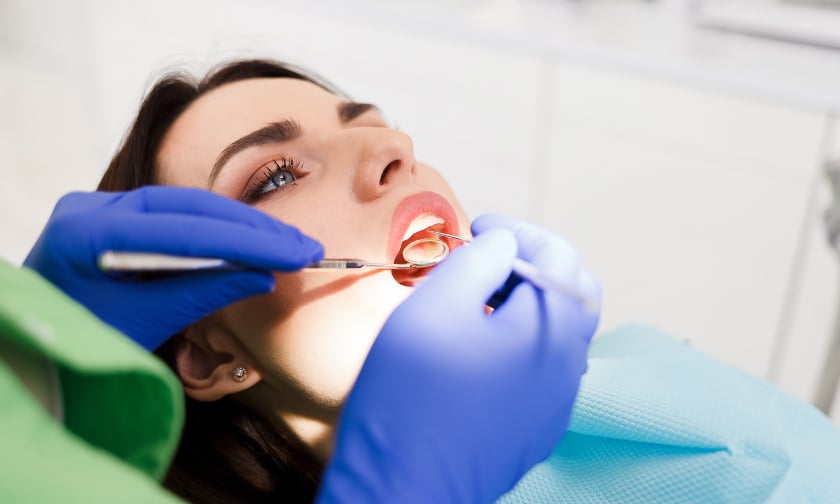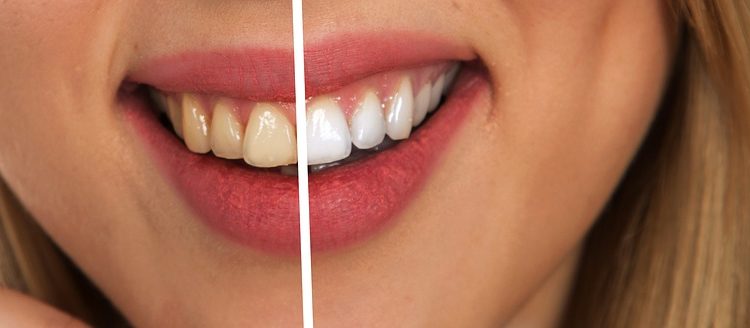
The Importance of Regular Dental Check-ups After Teeth Whitening
Teeth whitening is a popular cosmetic dental procedure that can transform your smile, boosting your confidence and giving you a more youthful appearance. However, maintaining those bright results and ensuring overall oral health requires more than just the initial whitening treatment. Regular dental check-ups are crucial after teeth whitening to monitor your oral health, address potential side effects, and preserve the longevity of your new smile.
In this blog post, we’ll explore why regular dental check-ups are essential after teeth whitening, what you can expect during these visits, and how to extend the benefits of your whitening treatment.
Understanding Teeth Whitening
Teeth whitening involves using bleaching agents like hydrogen peroxide or carbamide peroxide to remove stains and discoloration from the enamel. While the results can be stunning, it’s important to recognize that teeth whitening can have temporary side effects, such as increased tooth sensitivity and gum irritation.

These side effects typically subside within a few days, but in some cases, they can persist, requiring professional care. Moreover, the whitening effects are not permanent. Various factors, including your diet, oral hygiene habits, and lifestyle choices, can influence how long the results last.
Why Regular Dental Check-ups Are Essential After Whitening
Regular dental check-ups play a vital role in maintaining the health of your teeth and gums, particularly after a teeth whitening treatment. Here’s why these appointments are so important:
1. Monitoring Tooth Sensitivity:
Tooth sensitivity is a common side effect of teeth whitening, especially when consuming hot or cold foods and beverages. During your dental check-ups, your dentist can assess the level of sensitivity and recommend treatments, such as fluoride applications or desensitizing toothpaste, to help reduce discomfort.
2. Preventing and Managing Stains:
Even after whitening, your teeth can still become stained over time. Foods and drinks like coffee, tea, red wine, and certain fruits can contribute to discoloration, as can smoking. Regular dental cleanings can remove surface stains and help maintain the brightness of your teeth.
3. Ensuring Gum Health:
Gum irritation can occur if the whitening agents come into contact with the soft tissues. Your dentist will check your gums during regular appointments to ensure there’s no ongoing irritation or damage. Healthy gums are essential for supporting your teeth and maintaining a balanced, bright smile.
4. Detecting and Addressing Oral Health Issues:
Teeth whitening should only be done on healthy teeth. If you have underlying issues like cavities, gum disease, or cracked teeth, these could be exacerbated by the whitening process. Regular check-ups allow your dentist to detect and address any potential problems before they worsen.
5. Preserving the Whitening Results:
The effects of teeth whitening gradually fade over time. Regular dental check-ups allow your dentist to evaluate the condition of your teeth and suggest touch-up treatments as needed to keep your smile looking its best.
What to Expect During Post-Whitening Dental Check-Ups
Your dental check-ups after teeth whitening will be similar to your regular visits but with some added focus on the effects of the whitening treatment. Here’s what you can expect during these appointments:
1. Comprehensive Oral Examination:
Your dentist will perform a thorough examination of your teeth and gums, looking for any signs of sensitivity, gum irritation, or other issues that might have resulted from the whitening process.
2. Evaluation of Whitening Results:
The dentist will assess the effectiveness of the whitening treatment and discuss whether you’re satisfied with the results. If your teeth have begun to show signs of discoloration, they may recommend touch-up treatments to restore the brightness.
3. Professional Cleaning:
A professional cleaning will remove any plaque, tartar, and surface stains that have accumulated since your whitening treatment. This step is crucial for maintaining both the health and appearance of your teeth.
4. Personalized Oral Care Advice:
Your dentist will provide guidance on how to care for your teeth post-whitening, including recommendations for toothpaste, mouthwash, and other products designed to protect your enamel and prolong the results.
5. Scheduling Future Appointments:
Based on your oral health and the condition of your teeth, your dentist will suggest when you should schedule your next check-up. Regular appointments, typically every six months, are essential for ongoing maintenance.
The Long-Term Benefits of Regular Dental Check-Ups
Regular dental check-ups offer several long-term benefits that go beyond just preserving your whitening results. Here are some key advantages:
1. Early Detection of Oral Health Issues:
Routine check-ups allow your dentist to detect problems like cavities, gum disease, and oral cancer in their early stages when they are easier to treat. Early intervention can prevent more serious issues from developing.
2. Maintaining Overall Oral Health:
Professional cleanings help remove plaque and tartar that can lead to decay and gum disease. By maintaining your oral health, you not only preserve the appearance of your smile but also your overall well-being.
3. Personalized Care and Advice:
Your dentist can offer advice tailored to your specific needs, helping you avoid behaviors that could harm your teeth and recommending products that will keep your smile looking its best.
4. Long-Lasting Whitening Results:
With regular check-ups, your dentist can monitor the condition of your teeth and suggest touch-up treatments to keep your smile bright and white. This proactive approach ensures that you enjoy the benefits of your whitening treatment for as long as possible.
5. Peace of Mind:
Knowing that your oral health is being monitored by a professional provides peace of mind. Regular check-ups help you stay ahead of potential problems and keep your smile looking its best.
Tips for Maintaining Your Whitening Results Between Check-Ups
In addition to regular dental check-ups, there are steps you can take at home to help extend the results of your teeth whitening treatment:
1. Avoid Stain-Causing Foods and Beverages:
Limit your intake of foods and drinks known to stain teeth, such as coffee, tea, red wine, and dark-colored berries. If you do consume these, rinse your mouth with water immediately afterward to minimize staining.
2. Use a Straw:
When drinking beverages that could stain your teeth, use a straw to reduce contact with your teeth. This simple habit can help prevent discoloration and prolong the effects of your whitening treatment.
3. Maintain a Consistent Oral Hygiene Routine:
Brush your teeth at least twice a day and floss daily to remove plaque and prevent stains from building up. Using a whitening toothpaste can also help maintain your smile’s brightness.
4. Consider Touch-Up Treatments:
Depending on your dentist’s recommendations, you may need touch-up treatments every few months or as needed to keep your teeth looking their best. These touch-ups can help maintain the results of your initial whitening treatment.
5. Protect Your Teeth:
If you’re prone to grinding your teeth at night, talk to your dentist about getting a custom mouthguard. Grinding can wear down your teeth and make them more susceptible to stains and damage.
Teeth whitening is a fantastic way to enhance your smile, but the work doesn’t stop after the initial treatment. Regular dental check-ups are essential for maintaining the results of your whitening procedure and ensuring your overall oral health.
By attending regular appointments, you can monitor tooth sensitivity, prevent new stains, ensure gum health, and address any oral health issues that may arise. Additionally, by following good oral hygiene practices at home and making mindful lifestyle choices, you can extend the effects of your teeth whitening treatment and enjoy a bright, healthy smile for years to come.



